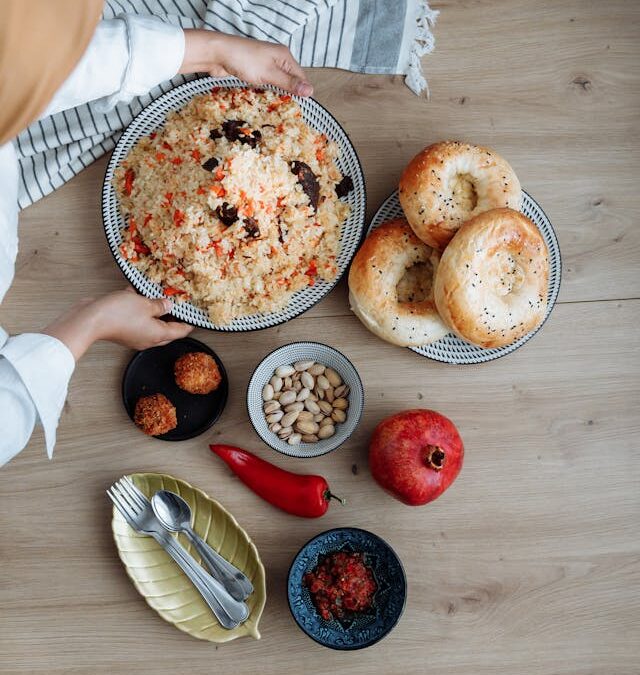Ramadan is the holiest month of the year—and for the nonprofit charity Islamic Relief USA (IRUSA), it is the month that defines the organization. In addition to delivering humanitarian aid around the world, IRUSA honors Ramadan by hosting Grand Iftar celebrations around the US.
Here is what you need to know about this forward-thinking nonprofit that is making a difference daily for so many individuals and their families, and how you can join them in embracing the traditions of this most blessed month.
What should I know about IRUSA?
IRUSA is a collective of like-minded people from diverse backgrounds who share a common set of values that include compassion, custodianship, excellence, sincerity, and social justice. The mission of this organization is to provide “relief and development in a dignified manner regardless of gender, race, or religion, and . . . to empower individuals in their communities and give them a voice in the world.”
IRUSA has a vision where people everywhere will work together to eradicate poverty around the globe. The culture and values of the organization are guided by the teachings in the Quran and the prophetic example.
What is Iftar?
In the Muslim calendar, Ramadan is the ninth month. The exact dates change from one year to another, as it is based on the lunar cycle, starting and ending with the crescent moon. This is a sacred time, believed to be the month during which the Quran was revealed to the Prophet Muhammad (PBUH). Prayer, reflection, spiritual devotion, and charity are accompanied by fasting each day over the course of the month, with food taken before dawn and after sunset.
Iftar is the name of the meal consumed in the evening after the sun sets, while the meal eaten in the early morning before the sun rises is referred to as Suhoor. However, Iftar is considered the main meal of the day and is somewhat more substantial than the morning fare.
Why is Iftar so important?
It is critical to keeping up one’s strength over many days of fasting and have sufficient energy for all the daily responsibilities of work, family care, and more. Plus, remaining in good health with a strong immune system to ward off diseases depends on proper and sufficient nutrition.
To this end, the Iftar meal should be balanced and include carbohydrates, essential vitamins and minerals, fiber, good fats, and protein. Carbohydrates that have a slow release, like whole grain bread and rice and oats are good choices that will help individuals feel full longer. Salt should be used in moderation when cooking to avoid discomfort later in the night. Adequate hydration is necessary, and this can be accomplished by not only drinking enough water, but by consuming produce like oranges, watermelon, and cucumbers that have a high water content. Finally, to demonstrate good choices for environmental sustainability, less meat may be consumed in favor of vegetables, legumes, and fruit.
From a physiological point of view, these are the reasons that Iftar is such a crucial meal. Of course, the real significance of Iftar is deeply spiritual—if Ramadan is a month of spiritual rejuvenation, Iftar is a physical embodiment of this truth. The meal is accompanied by prayer, reflection, and reading from the Quran. This evening meal represents love and mercy from Allah (SWT) for all souls who have been fasting for the day. And, there is particular affection for individuals who provide food to others at Iftar.
How does Islamic Relief help people in need partake in Iftar meals?
“Whoever feeds a person breaking his fast will earn the same reward as him, without anything being lessened from the reward of the fasting person.”
Each year during Ramadan, IRUSA and its international partners distribute food to families in need worldwide. This is especially important for Iftar, when staples like bread, cooking oil, flour, and rice are ingredients needed for a family’s evening meal after they break many hours of fasting.
In 2024, IRUSA’s food distribution program in the United States has expanded to include 23 cities across the country. Individuals celebrating the holy month of Ramadan and marking the end of their fast each day at Iftar can be assured of sufficient nutritious food to make their evening meal.
In addition, IRUSA will bring its annual Grand Iftar to 23 cities in March 2024. These events provide an opportunity to come together and enjoy a halal dinner, keynote speaker, recitation from the Quran, and Taraweeh Prayer. At some events, childcare is provided. The theme this year is “United for Palestine”—participants’ contributions will help IRUSA provide lifesaving aid and hope to those affected by the ongoing conflict and blockade of Gaza. Many Grand Iftar events will feature Shaikh Hassan Saleh, who is world-renowned as a reciter of the Quran. He will lead Taraweeh Prayer in 14 cities.
To find a Grand Iftar 2024 event near you, see irusa.org/grand-iftar.
How can I make a difference during Ramadan?
This holy month is a time for fasting, prayer, reverence, and good deeds. Charity during Ramadan is multiplied—it is an occasion to come together and do what we can collectively to make the world a better place for all.
Your donation to IRUSA can make a big difference in the lives of so many people in need, both during Ramadan and all year long. Join IRUSA in celebrating this blessed month.
